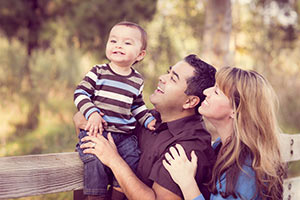ADOPTION IN
Delaware

Whether you’re considering placing a baby for adoption or hoping to adopt a child into your own forever family, an adoption agency in Delaware will be one of your best resources for support. The adoption process in Delaware can differ from other states, so working with professionals and getting all the information you can up front is in your best interest. Remember, Delaware adoption is an option for you.
Adoption Near Me
Looking for more resources in your area? Check out the Adoption Directory for a listing of adoption professionals in your state.

Considering Placing Your Baby or Child for Adoption? You can learn more here or call an adoption counselor 1-800-236-7898.
Domestic Infant Adoptions can be completed through private adoption attorneys or adoption agencies to adopt a child domestically. Click here for a directory of adoption service providers in Delaware.
International Adoptions must be completed through private adoption attorneys or adoption agencies to adopt a child internationally. Find an international adoption service provider here.
Foster Care Adoptions in Delaware can be completed through the Department of Services for Children, Youth and their Families (302-633-2655).
Gallery of children waiting to be adopted.
Join the New England adoption group in our community!
I’m considering placing my baby or child for adoption.
Pregnant and have questions? We can help answer your questions by telling us what works best for you.
Are you pregnant and considering adoption? Do you need help getting started?
Click here and help us understand what your needs are and the preferences you have. We can help you get started.
Delaware Adoption
By: Jenn Wright
Are you facing an unplanned pregnancy? Are you looking to add to your family or have infertility issues and cannot get pregnant? Hopefully, this article will give you some hope, and help you understand the ins and outs of Delaware adoption. But first, for those that are not from this state or those who do not know about the many interesting facts about it, let’s introduce you.
Fun and Interesting Facts about Delaware
According to Weird facts about Delaware, there are many facts that Delaware natives find interesting and even some they may not be aware of.
– Miles the monster, who has been the Delaware Speedway mascot for the last 21 years, weighs as much as 4,000 cute, full-grown cats. That is a lot of cats.
– Dover Downs is a huge race track that is bigger than the population of the following cities, put together: Rehoboth Beach, Newark, Middleton, and Delaware City. The cities mentioned can fit inside the racetrack with room to spare.
– Delaware claims 381 miles of shoreline, which is more than the U.S. Virgin Islands and the country of Guam combined.
– Most towns in Delaware boast less than 2,000 residents each.
– The DuPont, who make up the majority of residents in Delaware, is worth over 14 billion dollars. This could purchase five iPhones for each person in Ireland.
– There are around 200 more chickens than people in Delaware. Driving through Sussex with your windows down will reveal that one really quick. Pee-yew!
– 36.5 Washington D.Cs can fit in the entire state of Delaware.
– There are more corporations than people in the entire state of Delaware.
– Delaware is the birthplace of the Apollo spacesuit.
– Delaware is the birthplace of Superman (one of our favorite superhero adoptees).
Delaware Adoption
Just as in other states, adoption in Delaware is much the same. Expectant parents, or people who are pregnant and considering adoption, and hopeful adoptive parents can both take steps today toward building forever families for their children.
For adoption in any state, including Delaware, it is vital that one of the first steps you take is to do your research on the subject. How did adoption come to be? Where are the best places to adopt? What agencies should you use if you decide to place your baby for adoption? Many, many questions run through an expectant mother’s mind when it comes to considering adoption, but the more you know about the subject of adoption, the more peace of mind you can have later down the road.
Steps to Placing Your Baby for Adoption in Delaware
The decision to place your baby for adoption is difficult. It takes an act of love and selflessness to accept that you may not have the ability or the resources to raise a baby in the way that you want. You may have people, albeit with good intentions, telling you what to do, how to do it, and when to do it. They may mean well, but when it comes right down to it, the decision remains yours. The best way to make this choice is to trust in yourself. Know what is best for you and the child you are carrying.
1. Choosing an Adoption Agency
Once you have decided on Delaware adoption, the next thing you want to do is find an adoption agency that fits your needs. There are several agencies to choose from. One agency that is great to work with is the Gladney Center for Adoption. Even though Gladney originates in Texas, they are known to aid birth mothers and prospective adoptive parents in all aspects of adoption.
An adoption attorney handles all the aspects of the legal side of a Delaware adoption. They make sure that all of the documents are taken care of correctly so that things can go as smoothly as possible for you. Gladney has experienced attorneys who can answer all of your questions.
2. Choose A Family
Not too many years ago, the only way you could look into families interested in adoption, including Delaware adoption, was by sifting through hours and hours of paper files and pictures explaining who each family was. Thankfully, now, there are Parent Profiles that can show you families who are waiting and ready to adopt. This allows you to look through several families or individuals faster. You can even contact families to ask them questions, talk about their vision for their forever families, and more.
Meeting prospective adoptive parents can be difficult, but communication can make it that much easier, especially if you have some fun questions to start the conversation. Some of these might be:
– How did you meet?
– Do you have children already?
– What activities does your family enjoy?
– How do your children feel about you adopting? Do they have doubts or fears?
– Have you talked with them about what this means?
– Is there anything you want to know about me?
– Are you interested in an open adoption?
3. Create An Adoption Plan
To do this, you want to make certain that you and the family you choose are on the same page as far as the type of adoption you want. You may prefer a closed, semi-open, or open adoption plan.
Closed adoption
This was the only type of adoption to choose from until the 1970s. The issue with this kind is that once the baby is born and placed with his or her adoptive parents, the birth parents have no way of knowing what is going on with the baby or even if he or she is happy. When the child is 18 years old and wants to find out who his or her birth mother is, the child must go through the ordeal of getting a judge to unseal the records; even at that, there could be parts that are redacted.
Semi-open adoption
Semi-open adoptions allow for minimal contact between the biological and adoptive families. Typically this will look like a photo or letter sent once a year on the child’s birthday.
Open adoption
This kind has become more and more popular as time goes on. It allows the birth parents and the prospective adoptive parents to decide on how much contact will be had between biological and adoptive families. Whether it be through letters, photographs, social media, phone calls, and even visitation, these details can be determined before placement. This would allow the baby to grow up knowing more about his or her roots.
4. Make A Hospital Plan
It is during this step that you get to decide who is in the delivery room with you. You might want the birth father there so that the two of you can have some much-needed time to spend with your baby. Still, other birth mothers want their mother or the person who has been with them throughout the journey to share in this special time. And yet, there are birth mothers who want to give the adoptive mother, especially if she has never experienced any part of childbirth, a place in the experience. Ultimately, this choice is up to you.
5. Prepare For Finalization
After all is said and done and you realize you are not the same person pre-pregnancy, you want to embrace the new you. If you began counseling or therapy during pregnancy, continuing can be a great way to cope with the emotions you are feeling. This can also help in coming to terms with your new life and deciding what to do next.
Adopting A Baby In Delaware
1. Make the Decision
Talk with your partner about it and make sure that the two of you are on the same page. Once that is a go, you want to bring the idea to any children you might have. Let them voice their opinions and feelings. You must take how they feel into account.
2. Finding an Adoption Professional
Researching the different agencies in your area is vital. You need to find an agency that fits your situation and who will be a part of your journey from the beginning. They will be the ones who work between you and the expectant parents.
An adoption attorney can aid you in the legal aspects of the adoption from beginning to finalization. Make sure that both sides understand the contracts and all the paperwork that goes to the courts.
3. Home Study
This could, quite possibly, be the most daunting task. A social worker will interview each adult together and separately. They want to be sure that you have the room, the finances, and the environment a child would need to thrive. Once you pass the home study, it is a waiting game as you sit on pins and needles.
4. Meet an Expectant Mother
Meeting the birth mother can be just as nerve-wracking as the home study and the waiting. Most of the time, the first meeting is a phone call. The second is generally face-to-face with both your caseworker and the birth mother’s caseworker there. Come with questions, pictures, and openness.
6. Finalization
Once you have been chosen and the baby is born, then comes the time when the baby is placed with you. At this point, if they didn’t sign over their rights at the hospital, the birth parents are granted six months in which they can change their minds. When that period is up and they choose not to parent their child, there is a hearing in front of a judge where the birth parents finalize the adoption. If you chose an open adoption, this hearing is also when the judge assigns a visitation schedule that works for both parties.
Delaware Adoption Guide
The information contained on this website is for educational purposes only and is not intended to be a substitute for professional legal advice. Always seek the advice of a licensed and qualified professional. While the content of this website is frequently updated, information changes rapidly and therefore, some information may be out of date, and/or contain inaccuracies, omissions or typographical errors.
Can I Adopt in Delaware?
Applicants must be at least 21 years old in order to adopt. Hopeful adoptive parents can be single, married, or divorced. They can rent or own a home. In order to foster, parents must complete 27 hours of pre-service training. Parents must be economically stable and provide a list of character references.
What Adoption Regulations Exist in Delaware?
Advertisement: Only the Department of Services for Children, Youth and their Families or a licensed adoption agency may advertise in Delaware the availability of a child for adoption or for child placement.
No person or group connected to the adoption in any way shall receive any type of compensation for their services, except court costs and legal services. This does not prohibit licensed agencies from receiving service fees for cost of services rendered.
Relinquishment: Birth mothers can give their consent any time after the birth of their child. Birth father’s can consent any time before or after birth.
Birth parents must file a petition to revoke consent within 60 days from the date of filing the adoption petition. The court refers the case to revoke to the agency or department. The department or agency then makes a report within 30 days to give to the court. The court then rules upon the adoption petition to revoke consent.
Birth parent expenses: The only payments allowed are court costs and legal fees. No other type of payment is allowed.
Post-adoption contact agreements: Contact agreements are not legally enforceable in Delaware.
Birth father rights: Unmarried fathers wishing to receive notice of adoption proceedings must register their information with the registry of paternity before or within 30 days after the birth of the child.
If the child is at least 1 year old, all alleged fathers must receive notice regardless of filing their information. Fathers who establish a father-child relationship, or who commence a proceeding to adjudicate parental rights, are not required to register in order to receive notice.
Finalization: The child must live with the adoptive parent for at least 6 months. At least 3 post-placement visits are required before finalization.
Is Adoption Assistance Available in Delaware?
Can I adopt a Child from another country?
It is always possible to adopt a child from another country, even if you live in the U.S. In Delaware, readoption (the process by which a U.S. state court issues a final adoption decree separate from a foreign adoption decree stating that the child has been legally adopted according to the laws of a particular state) is an option, but not a requirement.
However, only when the readoption or validation of a foreign adoption decree occurs can the child receive a U.S. birth certificate (ChildWelfare.gov). For more information on how to adopt a child internationally, be sure to contact your local international adoption agency.
State Contacts
Gallery of children waiting to be adopted: https://adoption.com/photolisting?page=1&search_type=region&range=UnitedStates
State subsidy contact person:
Ana Prosceno
DSCYF/Division of Family Services
1825 Faulkland Road
Wilmington, DE 19805
Work: 302-633-2661
Fax: 302-633-2652
Email: ana.prosceno@state.de.us
Summary
Adoptions in Delaware can be completed through the Department of Services for Children, Youth and their Families.
Applicants must be at least 21 years old. You can be single, married, or divorced. You can rent or own a home. Foster parents must complete 27 hours of training. Parents must provide a list of references.
Only the Department of Services for Children, Youth and their Families or a licensed adoption agency may advertise.
Birth mothers must wait until after the child’s birth to consent. Birth father’s can consent before or after birth. Parents can revoke consent within 60 days from the date of the adoption petition.
Only court costs and legal fees are permitted. Contact agreements are not legally enforceable. Unmarried fathers wishing to receive notice of adoption proceedings must register their information with the registry of paternity.
The child must live with adoptive parents for 6 months before finalization.










